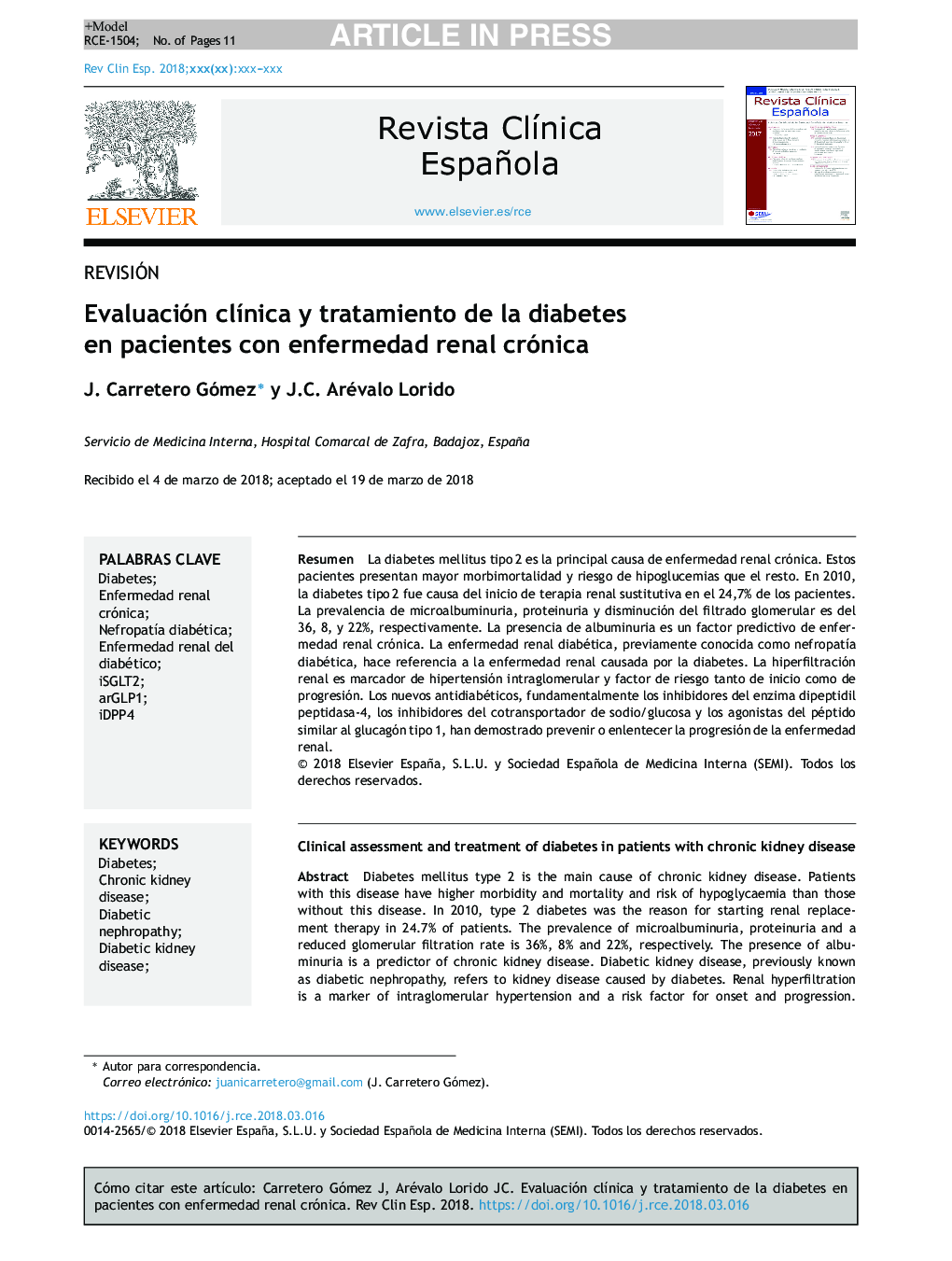| Article ID | Journal | Published Year | Pages | File Type |
|---|---|---|---|---|
| 8767004 | Revista Clínica Española | 2018 | 11 Pages |
Abstract
Diabetes mellitus type 2 is the main cause of chronic kidney disease. Patients with this disease have higher morbidity and mortality and risk of hypoglycaemia than those without this disease. In 2010, type 2 diabetes was the reason for starting renal replacement therapy in 24.7% of patients. The prevalence of microalbuminuria, proteinuria and a reduced glomerular filtration rate is 36%, 8% and 22%, respectively. The presence of albuminuria is a predictor of chronic kidney disease. Diabetic kidney disease, previously known as diabetic nephropathy, refers to kidney disease caused by diabetes. Renal hyperfiltration is a marker of intraglomerular hypertension and a risk factor for onset and progression. The new antidiabetic drugs, mainly dipeptidyl peptidase-4 inhibitors, sodium-glucose cotransporter inhibitors and glucagon-like peptide-1 agonists, have been shown to prevent or slow the progression of kidney disease.
Keywords
Related Topics
Health Sciences
Medicine and Dentistry
Medicine and Dentistry (General)
Authors
J. Carretero Gómez, J.C. Arévalo Lorido,
